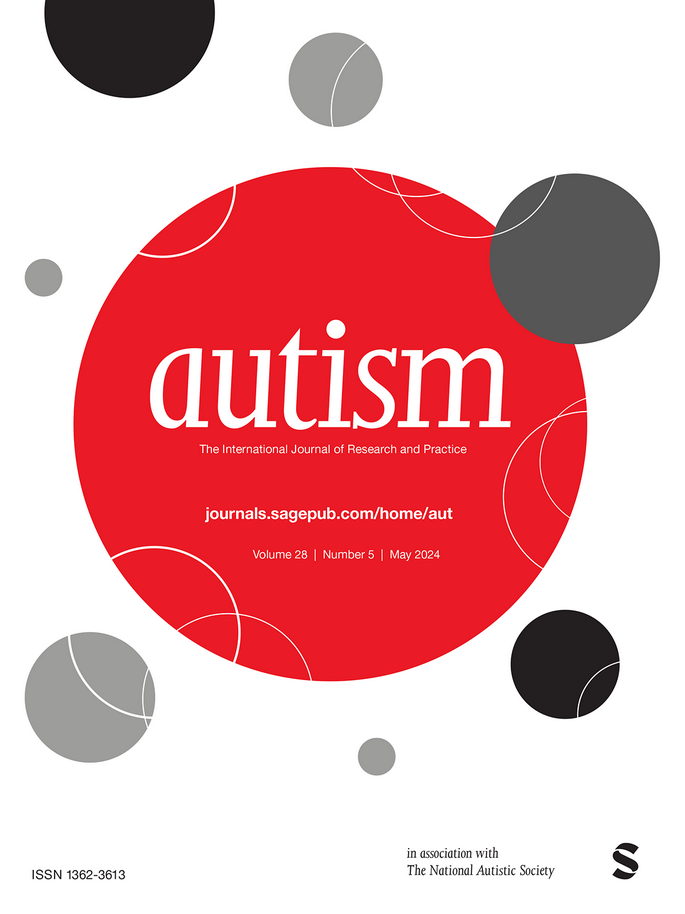自闭症和非自闭症社区成员参与自闭症研究的混合方法研究。
摘要
参与式研究是推进自闭症倡导者议程的一个途径;然而,自闭症研究者对参与式研究的态度和价值观却知之甚少。这是一项参与性研究混合方法研究,共有215名调查对象和21名受访者,他们都是自闭症研究论文的通讯作者。我们的目的是确定自闭症和非自闭症社区伙伴对参与性研究的态度和做法。我们发现各种参与性策略的比例相对较低,参与性研究障碍的比例中等,参与性研究重要性的认可程度中等。访谈阐明了参与式研究的最佳实践、障碍的复杂性以及对自闭症研究产生积极影响的变革力量。受访者讨论了参与式研究与语言决策之间的联系。调查结果表明,30%的自闭症研究人员从未使用过身份第一语言。访谈中出现的一个主题是探索内部研究的独特贡献,即自闭症患者将其从生活经验和正式研究培训中获得的专业知识带入研究。本研究描述了参与式自闭症研究的现状,并为其应用提供了指导。参与式研究是自闭症倡导人士、其他社区倡导人士和研究人员为自闭症社区的利益而共同努力的一种方式。参与式研究是指社区成员在整个研究过程中都是合作伙伴,例如,选择研究问题、确定研究方法和解释结果。然而,自闭症研究者对参与式研究的态度和价值观却知之甚少。本研究描述了自闭症研究者使用的参与式研究策略、研究者对参与式研究的态度以及研究者对参与式研究最佳实践的见解。我们研究了参与式自闭症研究,涉及自闭症患者和非自闭症患者,他们与自闭症群体有联系,比如自闭症患者的父母和老师。我们调查了215名自闭症研究人员,以了解自闭症研究的参与性有多大,自闭症研究人员认为参与性研究有多重要,以及进行参与性自闭症研究的障碍是什么。平均而言,参与调查的研究人员报告参与性研究的比例相对较低,参与性研究的障碍比例中等,对参与性研究价值的认同程度中等。调查还询问了他们在谈论自闭症时使用的语言;研究中有相当比例的研究人员报告说,他们从未使用过身份第一语言(例如,自闭症患者,而不是以人为本的语言;自闭症患者)。我们还采访了21位参与调查的研究人员。访谈涵盖的主题包括增加参与性研究的可能策略、参与性研究障碍的例子以及受访者对参与性研究重要性的看法。受访者还讨论了参与性研究与有关自闭症的语言决策之间的联系。几位受访者谈到了自闭症学者的独特贡献,他们既有自闭症患者的生活经历,又有正式的研究培训。Participatory research is one pathway for advancing the agenda of autistic advocates; however, little is known about the attitudes and values of autism researchers toward participatory research. This is a participatory research mixed-methods study of 215 survey respondents and 21 interviewees, all corresponding authors of published autism research papers. Our aim was to identify attitudes and practices about participatory research with autistic and non-autistic community partners. We found relatively low rates of various participatory strategies, moderate rates of barriers to participatory research, and moderate endorsement of the importance of participatory research. The interviews elucidated participatory research's best practices, complexity of barriers, and transformative power to positively impact autism research. Interviewees discussed the connection between participatory research and decisions about language. The survey responses indicated that 30% of autism researchers never used identity-first language. An emergent theme from the interviews explored the unique contribution of insider research-research in which an autistic person brings their expertise derived from lived experience and formal research training. This research provides descriptions of the current state of participatory autism research and guidance for its utilization.Lay AbstractParticipatory research is a way for autistic advocates, other community advocates, and researchers to work together for the benefit of the autistic community. Participatory research is when community members are partners throughout the research process, for example, selecting research questions, determining research methods, and interpreting results. However, little is known about autism researchers' attitudes and values about participatory research. This research describes the participatory research strategies autism researchers use, researchers' attitudes toward participatory research, and researchers' insights into best practices in participatory research. We looked at participatory autism research involving autistic people and non-autistic people who are connected to the autistic community, such as parents and teachers of autistic people. We surveyed 215 autism researchers to find out how much autism research is participatory, how important autism researchers think participatory research is, and what barriers get in the way of doing participatory autism research. On average, researchers who responded to the survey reported relatively low rates of participatory research, medium rates of barriers to participatory research, and medium agreement on the value of participatory research. The survey also asked what language they use regarding autism; a significant proportion of researchers in the study reported never using identity-first language (e.g., autistic person, as opposed to person-first language; person with autism). We also interviewed 21 of the researchers who responded to the survey. The interviews covered topics such as possible strategies to increase participatory research, examples of barriers to participatory research, and the interviewees' views on the importance of participatory research. Interviewees also discussed the connection between participatory research and decisions about language regarding autism. Several interviewees talked about the unique contributions of autistic academics, who have both lived experience as autistic people and formal research training.

 求助内容:
求助内容: 应助结果提醒方式:
应助结果提醒方式:


